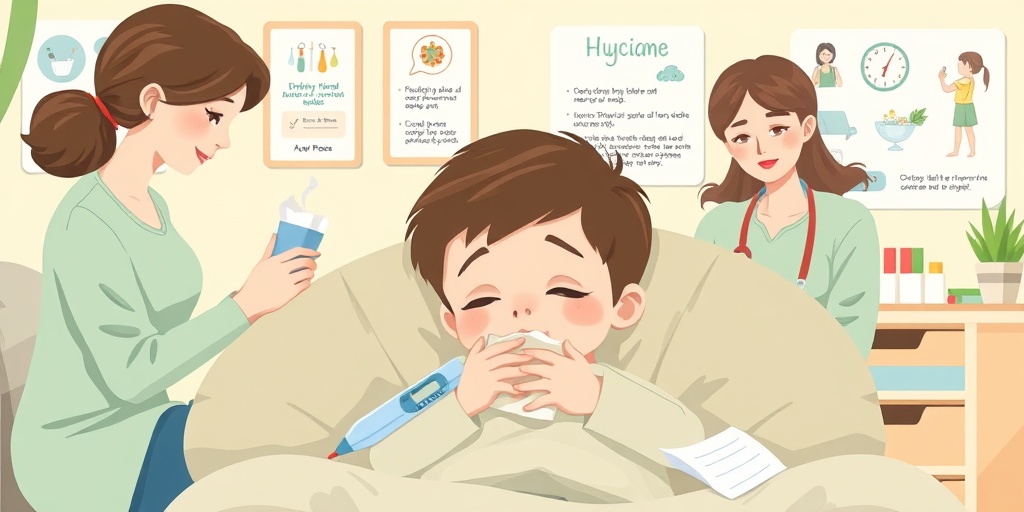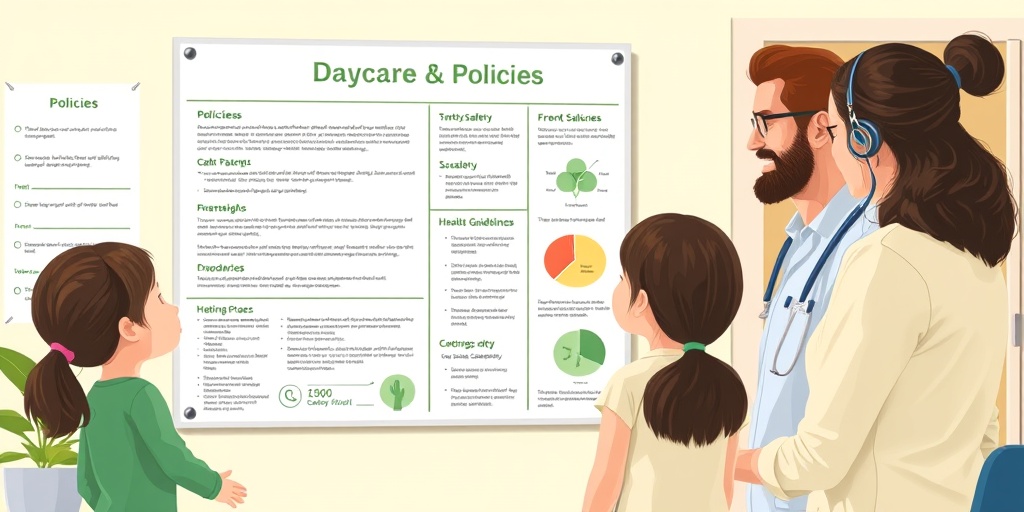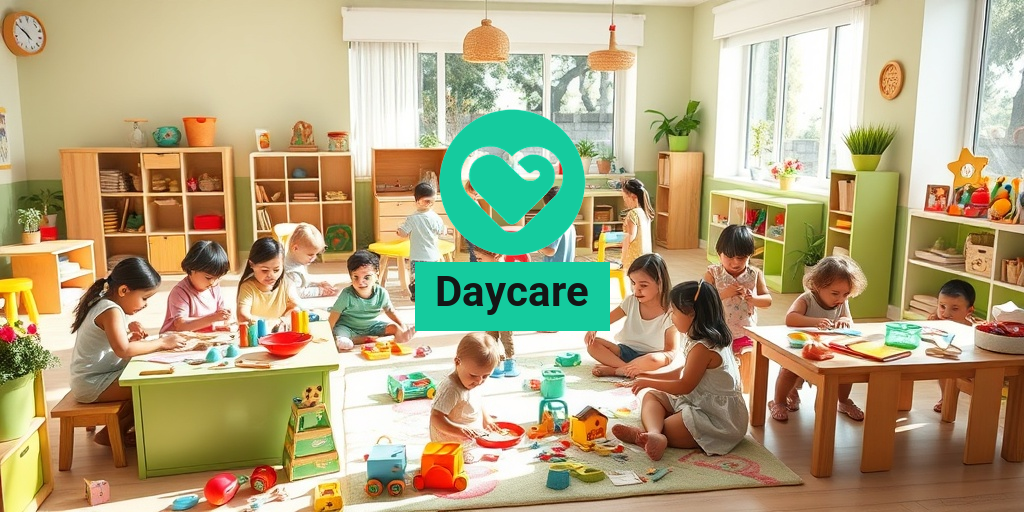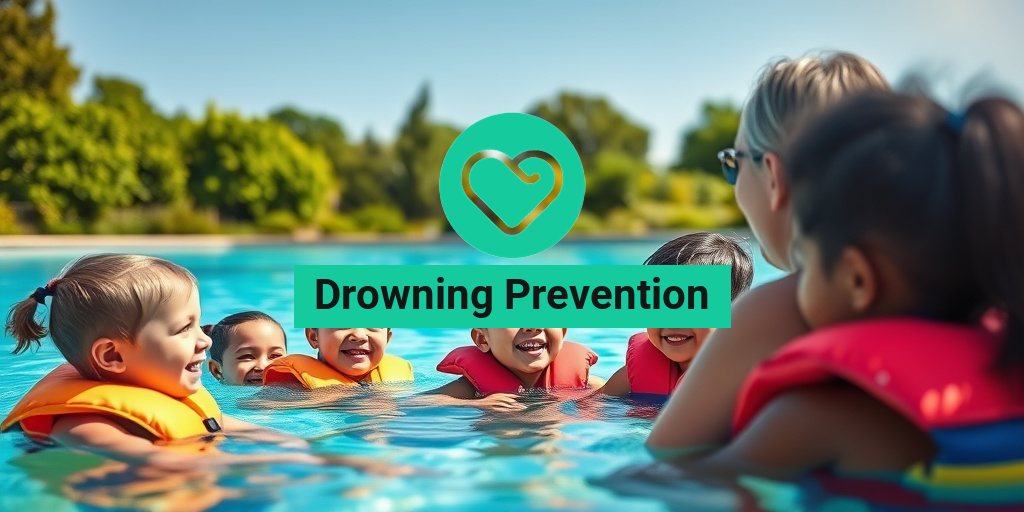What Is Daycare?
Daycare, often referred to as child care, is a service that provides supervision and care for children during the day, typically while their parents are at work or engaged in other activities. Daycare can take various forms, including home daycare, daycare centers, and even specialized programs like Montessori daycare. The primary goal of daycare is to create a safe, nurturing environment where children can learn, play, and socialize with their peers.
Types of Daycare
- Home Daycare: Operated out of a caregiver’s home, this type of daycare often provides a more intimate setting for children, typically with fewer kids than larger centers.
- Daycare Centers: These facilities are dedicated to child care and can accommodate a larger number of children. They often have structured programs and trained staff.
- Infant Daycare: Specifically designed for infants, these programs focus on the unique needs of babies, including feeding, diapering, and early socialization.
- Drop-In Daycare: This flexible option allows parents to leave their children for short periods, making it ideal for those who need occasional care.
- Adult Daycare: While not for children, this type of daycare provides care for adults who may need assistance during the day, offering social activities and support.
Daycare services are essential for many families, providing a reliable solution for child care needs. With the growing demand for daycare, parents often search for options like daycare near me or infant daycare near me to find the best fit for their children.
Benefits of Daycare
Choosing the right daycare can have a profound impact on a child’s development. Here are some of the key benefits of enrolling your child in daycare:
Socialization Opportunities
One of the most significant advantages of daycare is the opportunity for children to socialize with their peers. Interacting with other children helps develop essential social skills, such as sharing, cooperation, and conflict resolution. This early exposure to group dynamics can set the foundation for future relationships.
Structured Learning Environment
Many daycare centers offer structured programs that include educational activities designed to promote cognitive and emotional development. Programs often incorporate play-based learning, which is crucial for young children’s growth. For instance, Montessori daycare emphasizes hands-on learning and independence, fostering a love for learning from an early age.
Qualified Caregivers
Daycare centers typically employ trained professionals, including daycare teachers who understand child development and can provide quality care. This expertise ensures that children are in a safe environment where their needs are met, both physically and emotionally.
Flexibility for Parents
Daycare provides parents with the flexibility they need to balance work and family life. With options like drop-in daycare or home daycare, parents can choose care that fits their schedules, reducing stress and allowing them to focus on their jobs or other responsibilities.
Preparation for Preschool
Daycare can serve as a stepping stone to preschool, helping children transition smoothly into more formal education settings. The skills they acquire in daycare, such as following routines and interacting with peers, can make the transition to preschool much easier.
Peace of Mind
For many parents, knowing their child is in a safe and nurturing environment provides peace of mind. Daycare centers often have policies in place to ensure the safety and well-being of children, including background checks for staff and safety protocols.
In conclusion, daycare offers numerous benefits that can positively impact a child’s development and provide essential support for parents. Whether you are looking for dog daycare for your furry friend or a daycare center for your child, understanding the options available can help you make informed decisions. For more information on health and wellness, consider visiting Yesil Health AI for evidence-based answers to your questions. 🌟

Daycare Health Standards
Ensuring the health and safety of children in daycare settings is a top priority for parents and caregivers alike. Daycare health standards are designed to create a safe environment where children can thrive. These standards vary by location and type of daycare, but they generally encompass several key areas.
1. Licensing and Regulations
Most daycare centers must adhere to state and local regulations, which often include obtaining a license. This licensing process typically involves inspections to ensure that the facility meets health and safety standards. Parents should always check if a daycare is licensed and compliant with local regulations. This can often be done by searching for daycare near me and reviewing the facility’s credentials.
2. Staff Qualifications
Qualified staff is essential for maintaining high health standards in daycare. Caregivers should have training in child development, first aid, and CPR. Additionally, many daycare centers require staff to undergo background checks to ensure the safety of the children. When looking for a daycare center, inquire about the qualifications of the staff and their ongoing training programs.
3. Cleanliness and Hygiene
Maintaining a clean environment is crucial in preventing the spread of illnesses. Daycare facilities should have strict cleaning protocols in place, including:
- Regular sanitization of toys and surfaces
- Frequent handwashing for both staff and children
- Proper food handling and storage practices
Parents can help by teaching their children the importance of hygiene, which is especially vital in settings like infant daycare or preschool.
4. Health Policies
Daycare centers should have clear health policies regarding illness and injury. This includes guidelines on when children should stay home due to illness, as well as procedures for handling sick children at the facility. Parents should familiarize themselves with these policies to ensure they align with their expectations. For example, knowing the daycare cost associated with sick days can help in planning ahead.
5. Emergency Preparedness
In case of emergencies, daycare centers should have a well-defined plan. This includes having first aid kits readily available, conducting regular emergency drills, and ensuring that all staff members are trained in emergency response. Parents should ask about these plans when considering options like home daycare or dog daycare for their pets.
Common Illnesses in Daycare
Despite the best efforts to maintain health standards, children in daycare settings are still susceptible to various illnesses. Understanding these common ailments can help parents take preventive measures and respond appropriately.
1. Common Cold
The common cold is one of the most frequent illnesses in daycare settings. Symptoms include a runny nose, cough, and mild fever. Since colds are highly contagious, it’s essential for parents to keep sick children at home to prevent spreading the virus to others.
2. Gastroenteritis
Also known as the stomach flu, gastroenteritis can spread quickly in daycare environments. Symptoms include vomiting, diarrhea, and stomach cramps. Maintaining good hygiene practices, such as regular handwashing, can help reduce the risk of outbreaks.
3. Hand, Foot, and Mouth Disease
This viral infection is common among young children and is characterized by sores in the mouth and a rash on the hands and feet. It spreads easily in daycare settings, so parents should be vigilant for symptoms and keep affected children at home until they recover.
4. Pink Eye (Conjunctivitis)
Pink eye is another common illness in daycare, often caused by bacteria or viruses. Symptoms include redness, itching, and discharge from the eyes. If a child shows signs of pink eye, it’s crucial to consult a healthcare provider and follow the daycare’s policy on returning after illness.
5. Respiratory Syncytial Virus (RSV)
RSV is a common respiratory virus that can lead to serious infections in infants and young children. Symptoms include coughing, wheezing, and difficulty breathing. Parents should be aware of RSV outbreaks in their area and take necessary precautions, especially for infants in infant daycare.
By understanding daycare health standards and common illnesses, parents can make informed decisions about their child’s care and well-being. Whether you’re searching for a doggy daycare or a daycare teacher for your child, prioritizing health and safety is essential for a positive daycare experience. 🏫✨

Daycare Safety Tips
Ensuring the safety of children in daycare settings is a top priority for parents and caregivers alike. With the right precautions and awareness, you can create a safe environment for your little ones. Here are some essential daycare safety tips to consider:
1. Verify Licensing and Accreditation
Before enrolling your child in a daycare center, it’s crucial to check if the facility is licensed and accredited. This ensures that the daycare meets specific safety and health standards. You can usually find this information on the daycare’s website or by contacting local regulatory agencies.
2. Conduct Regular Safety Inspections
Whether it’s a home daycare or a larger facility, regular safety inspections are vital. Look for:
- Secure play areas free from hazards
- Properly maintained toys and equipment
- Safe sleeping arrangements for infants
3. Staff Training and Background Checks
Ensure that all daycare staff members are trained in first aid and CPR. Additionally, background checks should be mandatory to guarantee that caregivers are qualified and trustworthy. This is especially important in settings like infant daycare or preschool, where young children require extra attention.
4. Emergency Preparedness
Ask about the daycare’s emergency procedures. A well-prepared daycare should have plans in place for:
- Fire drills
- Natural disasters
- Medical emergencies
Make sure they conduct regular drills to keep both staff and children familiar with these procedures.
5. Health and Hygiene Practices
Good hygiene practices are essential in any daycare setting. Ensure that the facility follows strict protocols for:
- Handwashing
- Sanitizing toys and surfaces
- Managing illnesses among children
These practices help prevent the spread of germs and keep children healthy.
6. Open Communication with Parents
Establishing open lines of communication between parents and daycare staff is crucial. Regular updates about your child’s day, any incidents, or changes in routine can help parents feel more secure about their child’s safety.
Choosing the Right Daycare
Finding the perfect daycare for your child can be a daunting task. With so many options available, it’s essential to consider various factors to ensure you make the best choice. Here are some tips for choosing the right daycare:
1. Determine Your Needs
Before you start your search, assess your family’s needs. Consider factors such as:
- Your child’s age and developmental stage
- Location and convenience (look for daycare near me)
- Hours of operation that fit your schedule
2. Research Different Types of Daycare
There are various types of daycare options available, including:
- Home daycare: Often more intimate and flexible.
- Daycare centers: Typically larger with structured programs.
- Montessori daycare: Focuses on child-led learning.
Understanding the differences can help you find the right fit for your child.
3. Visit Potential Daycares
Once you have a shortlist, schedule visits to each facility. Pay attention to:
- The cleanliness and safety of the environment
- The behavior of staff and children
- Available resources and activities
Trust your instincts during these visits; a welcoming atmosphere is essential.
4. Ask Questions
Don’t hesitate to ask questions during your visits. Inquire about:
- Staff-to-child ratios
- Daily schedules and activities
- Policies on discipline and communication
Understanding these aspects will give you a clearer picture of how your child will be cared for.
5. Consider the Cost
Daycare costs can vary significantly based on location and type of care. Research the average daycare cost in your area and consider your budget. Remember that while affordability is important, the quality of care should be your top priority.
6. Trust Your Gut
Finally, trust your instincts. If a daycare feels right for you and your child, it likely is. Your comfort level with the staff and environment is crucial for a positive daycare experience.
By following these tips, you can confidently choose a daycare that meets your family’s needs while ensuring a safe and nurturing environment for your child. 🏡👶

Daycare and Child Development
Choosing the right daycare for your child is one of the most significant decisions you will make as a parent. Not only does it provide a safe environment for your little one, but it also plays a crucial role in their overall development. In this section, we will explore how daycare influences child development and what to look for in a quality daycare program.
The Importance of Early Childhood Education
Research shows that early childhood education is vital for cognitive and social development. A quality daycare center can provide structured learning experiences that promote:
- Social Skills: Interacting with peers helps children develop essential social skills, such as sharing, cooperation, and conflict resolution.
- Cognitive Development: Engaging activities stimulate curiosity and critical thinking, laying the groundwork for future learning.
- Emotional Growth: Children learn to express their feelings and understand others’ emotions, fostering empathy and emotional intelligence.
Types of Daycare Programs
When considering daycare options, it’s essential to understand the different types available:
- Home Daycare: Often run by individuals in their homes, these settings can provide a more intimate environment for infants and toddlers.
- Daycare Centers: Larger facilities that offer structured programs and activities for various age groups, including preschool options.
- Montessori Daycare: Focuses on child-led learning and hands-on activities, promoting independence and critical thinking.
- Drop-in Daycare: Flexible care options for parents needing occasional childcare without a long-term commitment.
Choosing the Right Daycare
When searching for a daycare near me, consider the following factors:
- Staff Qualifications: Look for trained daycare teachers who understand child development and can provide a nurturing environment.
- Safety and Cleanliness: Ensure the facility meets safety standards and is clean and well-maintained.
- Curriculum: Inquire about the educational programs offered and how they align with your child’s developmental needs.
- Parent Reviews: Check online reviews and ask other parents about their experiences with the daycare.
Daycare Policies and Procedures
Understanding the policies and procedures of a daycare center is crucial for ensuring a smooth experience for both you and your child. These guidelines help maintain a safe and nurturing environment, and knowing them can ease any concerns you may have.
Enrollment and Admission Policies
Each daycare has its own enrollment process, which may include:
- Application Forms: Completing necessary paperwork to secure a spot for your child.
- Interviews: Some centers may require a meeting to discuss your child’s needs and expectations.
- Trial Periods: Many daycares offer a trial period to ensure the fit is right for both the child and the caregivers.
Health and Safety Regulations
Health and safety are top priorities in any daycare setting. Policies may include:
- Illness Policies: Guidelines on when to keep your child home if they are sick to prevent the spread of illness.
- Emergency Procedures: Clear protocols for emergencies, including evacuation plans and first aid procedures.
- Nutrition Guidelines: Information on meals and snacks provided, including any dietary restrictions or allergies.
Communication with Parents
Effective communication between daycare staff and parents is essential for a successful partnership. Look for:
- Regular Updates: Daily reports or newsletters that inform you about your child’s activities and progress.
- Parent-Teacher Meetings: Opportunities to discuss your child’s development and any concerns.
- Open Door Policies: A welcoming environment where parents can visit and observe their child’s experience.
By understanding daycare policies and their impact on child development, you can make informed decisions that benefit your child’s growth and well-being. Whether you’re looking for infant daycare, dog daycare, or any other type of care, being well-informed is key! 🧸✨

Frequently Asked Questions
What is the average cost of daycare services?
The cost of daycare can vary significantly based on location, type of care, and age of the child. On average, parents can expect to pay anywhere from $200 to $1,500 per month. It’s advisable to research daycare centers in your area to get a more accurate estimate.
What types of daycare options are available?
- Home daycare: Care provided in a caregiver’s home.
- Daycare centers: Larger facilities that cater to multiple children.
- Infant daycare: Specialized care for infants.
- Montessori daycare: Focuses on child-led learning.
- Drop-in daycare: Flexible care for occasional needs.
How do I find daycare near me?
To find daycare near you, consider using online search engines or local directories. You can also ask for recommendations from friends, family, or pediatricians. Websites that specialize in childcare listings can also be helpful.
What qualifications should a daycare teacher have?
A qualified daycare teacher typically holds a degree in early childhood education or a related field. Additionally, they should have experience working with children and may need to pass background checks and obtain certifications in first aid and CPR.
Are there any daycare assistance programs available?
Yes, many states offer daycare assistance programs to help families afford childcare. These programs may provide financial aid based on income and family size. It’s best to check with your local government or social services for specific options available in your area.
What should I look for in a daycare facility?
- Safety and cleanliness: Ensure the facility is safe and well-maintained.
- Staff-to-child ratio: A lower ratio often means more individualized attention.
- Curriculum and activities: Look for a program that offers a variety of engaging activities.
- Reviews and recommendations: Check online reviews and ask for references.
What are the benefits of enrolling my child in daycare?
Enrolling your child in daycare can provide numerous benefits, including:
- Socialization with peers
- Structured learning environments
- Development of independence and self-confidence
- Access to trained professionals
Can I find daycare jobs near me?
Yes, there are many resources available for finding daycare jobs near you. Job search websites, local classifieds, and community boards often list openings in childcare facilities. Networking with other professionals in the field can also lead to job opportunities.
What is the difference between daycare and preschool?
Daycare typically provides care for children while parents are at work, focusing on supervision and basic activities. In contrast, preschool is more structured and educational, preparing children for kindergarten with a curriculum that promotes learning and development.
Is there a daycare option for pets?
Yes! Many areas offer pet daycare services, often referred to as doggy daycare. These facilities provide a safe environment for pets to socialize and play while their owners are away.




